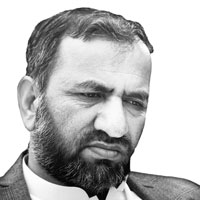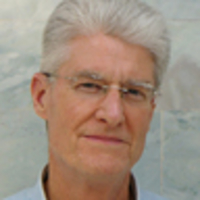Attempting to clear his good name, author Greg Mortenson has issued a response to a damning 60 Minutes report that alleged discrepancies in his philanthropic bestsellers Three Cups of Tea and Stones Into Schools. “I’m not a journalist. I don’t take a lot of notes,” Mortenson acknowledged in an interview with Outside, admitting that some things got “compressed.”
But Mortenson’s host on his Pakistan trip tells another story: Mansur Khan Mahsud shares new details with The Daily Beast about the author’s lies—and the outrageous kidnapping tale he spun.
Plus, Lloyd Grove and Mike Giglio report on the media fallout, and Howard Kurtz laments yet another memoir meltdown.
The last time Mansur Khan Mahsud saw Greg Mortenson was in July, 1996 when the eventual author of the best-selling Three Cups of Tea was profusely thanking his Mehsud tribal hosts for their hospitality during his nearly two-week stay in their village of Kot Langer Khel in Pakistan’s South Waziristan tribal agency. Mansur’s uncle, Naimat Gull, was taking Mortenson back to Peshawar where the two had met by chance in a hotel. Mortenson, Mahsud says, asked Gull to take him to his home village because he wanted to visit the famous tribal belt as an adventure tourist. Gull agreed. On the waym Gull taught Mortenson a few sentences in Pashto, such as “I am a Mehsud,” and “I am going to Ladha,” the district in which the village is located—in order to hide his identity. Foreigners are forbidden by Pakistani law from visiting the tribal agencies without official permission.
Not surprisingly Mahsud, a researcher and expert on the Federally Administered Tribal Areas, or FATA, as the lawless tribal lands are officially called, was shocked and outraged when he received a phone call recently from the Into Thin Air author Jon Krakauer, informing him that Mortenson had described his Waziristan experience in his books as a kidnapping. Several men, Mortenson wrote, had kidnapped him at gunpoint, taken his money and passport and held him against his will for eight days. “His chapter about Waziristan in his book Three Cups of Tea is nothing but lies from A to Z. Not a word of this is true,” says Mahsud. “He has defamed and slandered my family and tribe by calling us kidnappers. This has made me very angry.”
“His chapter about Waziristan in his book Three Cups of Tea is nothing but lies from A to Z. Not a word of this is true,” says Mahsud.
As Mahsud tells the story, Mortenson arrived in the village as an honored guest. He was wearing the traditional Mehsud tribal dress of a shalwar kameez and a felt hat with a rolled up rim. Gull introduced Mortenson to the villagers as being a medical doctor and professor at an American medical college. Mortenson concurred with that description and then started to pass out medical tablets to some women and children. To accommodate their guest’s interest in the region, Gull, Mahsud, and other village men took Mortenson on a tour around the district. All of Mortenson’s escorts were armed as is customary in the tribal belt, a necessary precaution against criminal gangs and kidnappers who prey on the unwary in that remote, rough and tumble land.

Mahsud says Mortenson was even made the guest of honor at the village’s annual soccer tournament. On one trip the villagers took Mortenson to the Ladha Fort, a government security outpost. On his laptop computer at his office in Islamabad, Mahsud shows a photo of Mortenson that was taken that July. The picture shows Mortenson, smiling, standing shoulder to shoulder with eight other men. They are all armed with AK-47s. So is Mortenson. He too is cradling an AK-47 with a huge 75-round magazine attached. “He claims we are all kidnappers,” says Mahsud. “You can clearly see this man is not a frightened, kidnapped man, but a very happy one.
In another picture of a smiling Mortenson, he is sitting on a carpet, between two other men, leaning against a wall. Mahsud says Mortenson stayed at Gull’s house and even played CDs of Pashto and Turkish music that he was carrying with him for the family's entertainment. Mahsud says Mortenson’s claim that he was forced to pick up copy of the Quran, do ablutions and promise to convert to Islam is false. “All the time we treated him very well according to Pashtunwali values,” Mahsud says.

Mahsud points out other untruths in Mortenson’s text. He says that the author wrote that he called his wife in the U.S. from the village. But there were no phones, either cell phones or landlines, in the village in 1996 and the nearest working phone was eight miles away, and it did not have an international connection. Mahsud is also incensed that Mortenson called his “kidnappers” Taliban. As Mahsud correctly says in 1996 there were no Taliban in the tribal areas. Mullah Mohammad Omar’s Afghan Taliban had just taken over Kabul, but for the Pashtun tribesmen in Pakistan, Mahsud says, “the image of the Afghan Taliban was not very great and people were not sympathetic to them.” He says the Taliban didn’t really appear in Waziristan until after the collapse of Mullah Omar’s regime in late 2001.
Mahsud says Mortenson wanted to stay in the village several more days but that the government agent for South Waziristan was pressuring the family to take him back to Peshawar. “The political agent put pressure on our families to convince Mortensen to go back to Peshawar,” Mahsud says. “The agent was worried that if something happened to Greg in Waziristan, it would create problems for the political administration.”
So the family said goodbye to Mortenson who thanked them for their kind hospitality. Naimat Gull then took him back to Peshawar. “We never heard from him again,” Mahsud says. “He never talked about building schools or doing anything for us.”
Mahsud believes that money was the motive for Mortenson’s slandering of his family. “He just wanted to sell books because by 2006 everyone wanted to know about the Taliban and Waziristan,” Mahsud says. “He thought this was a good chance to cash in.”
Ron Moreau is Newsweek’s Afghanistan and Pakistan correspondent and has been covering the region for the magazine the past 10 years. Since he first joined Newsweek during the Vietnam War, he has reported extensively from Asia, the Middle East, and Latin America.
Sami Yousafzai is Newsweek's correspondent in Pakistan and Afghanistan, where he has covered militancy, Al Qaeda, and the Taliban for the magazine since 9/11. He was born in Afghanistan but moved to Pakistan with his family after the Russian invasion in 1979. He began his career as a sports journalist but switched to war reporting in 1997.






